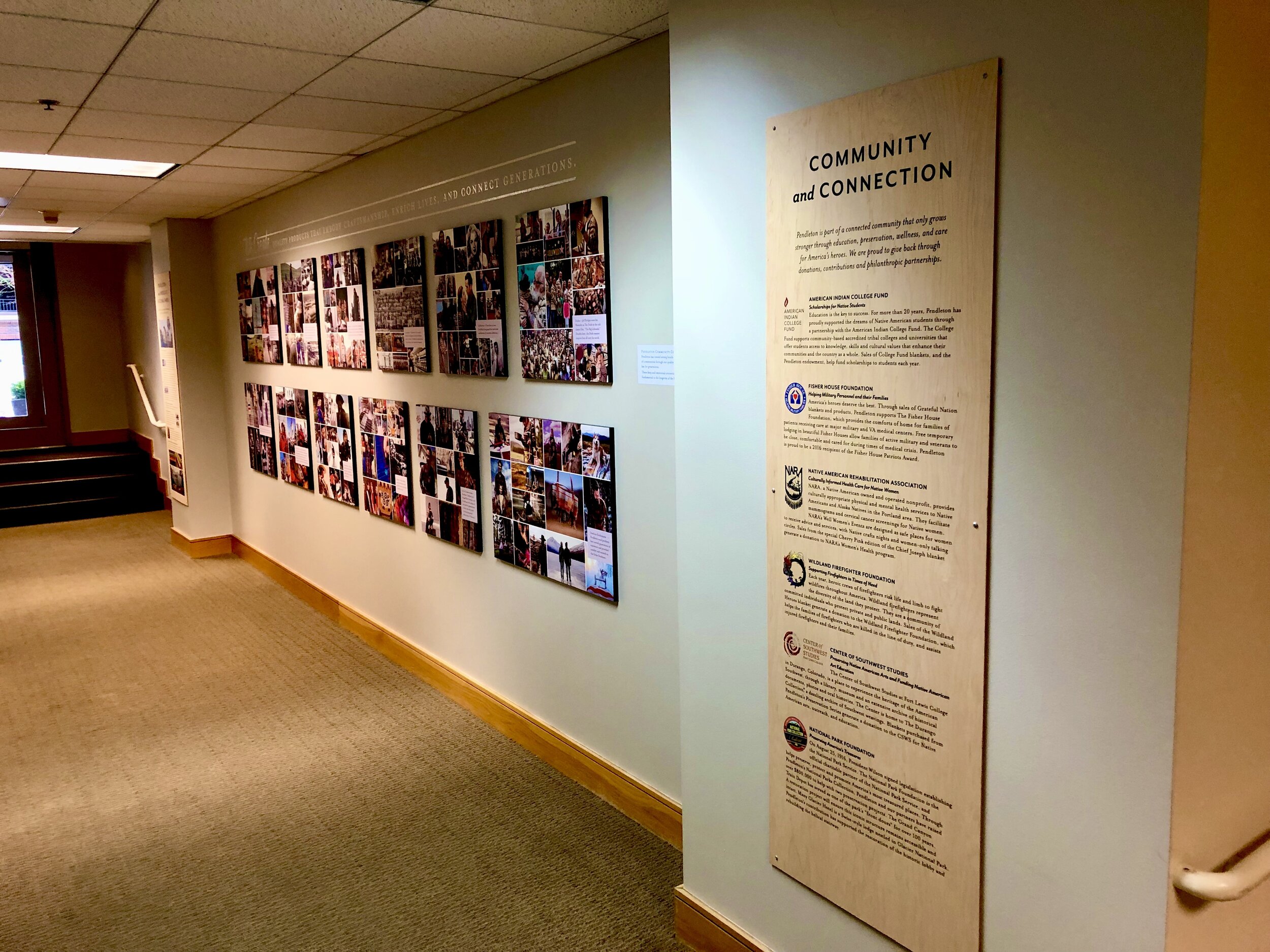Heritage Hallway at Pendleton Woolen Mills
Pendleton Woolen Mills logo. Courtesy Pendleton Woolen Mills.
Pendleton Woolen Mills (PWM) is an iconic American apparel brand headquartered in Portland, Oregon. With roots going back to 1863, the company remains a privately held, fifth-generation family-owned business. Today, the company owns and operates 5 facilities, manages 75 retail and outlet stores, and offers online catalogs.
The PWM Archives was established in 1989 in consultation with The Winthrop Group as a private corporate archive. With over 30 years of formal collecting activities, the PWM Archives includes documentation of key product lines and significant business functions. Serving as a vital research hub, the PWM Archives provides inspiration for design and collaborations with other brands, and storytelling content to reinforce company values and connect with customers and other communities.
Heritage Hallway featuring a series of milestones. Image courtesy Ryan Anthony Donaldson.
A recent reimagining of PWM’s Heritage Hallway at its corporate offices in Portland provided an opportunity to vividly exhibit these key themes. Organized and updated by PWM Staff, the display includes a timeline with company milestones. The milestones are complemented with photos of family members and executive leadership, important factory sites, and events such as the Pendleton Round-Up; original sketch drawings and reproductions of advertisements; and PWM products featured in pop culture, from Beach Boys vinyl records to The Big Lebowski.
Heritage Hallway featuring a series of milestones. Image courtesy Ryan Anthony Donaldson.
PWM’s production process is also explained, which includes an interactive area to touch wool samples, and a history of PWM’s trade blankets, with a variety of examples from the PWM collections. In addition, there is a “Community and Connection” area that communicates customer stories, and PWM’s partnerships with the American Indian College Fund, Fisher House Foundation, Native American Rehabilitation Association, and the Wildland Firefighter Foundation, among others.
View of the “Community and Connection” section. Image courtesy Richard S. Hobbs.
The Heritage Hallway furthers one of the core objectives of the PWM Archives in raising the visibility of heritage assets and demonstrating the enduring value that the collections have for the business, family, customers, and larger community.
This article originally appeared in the Business Archives Quarterly Vol. 2, No. 1.




